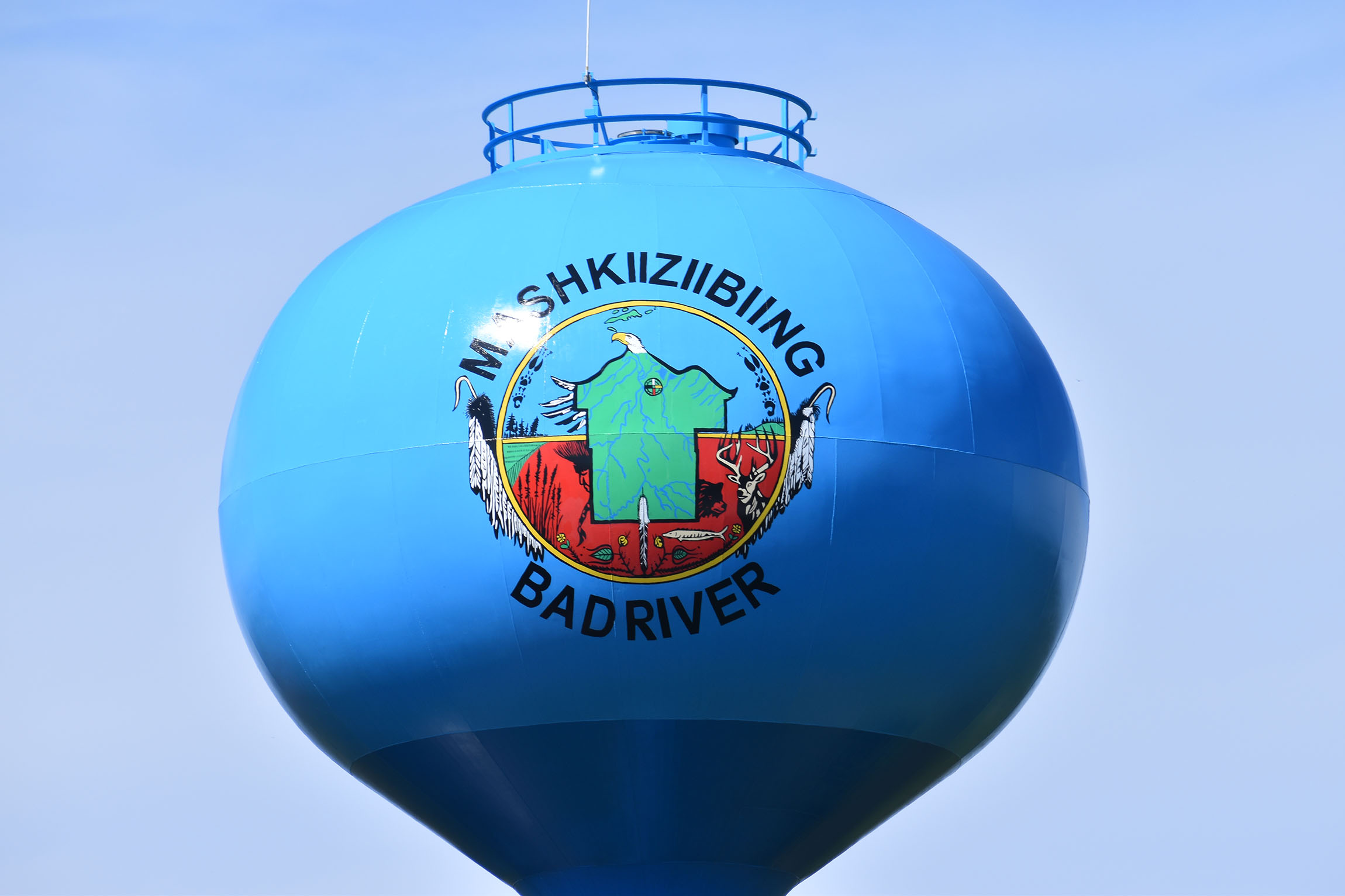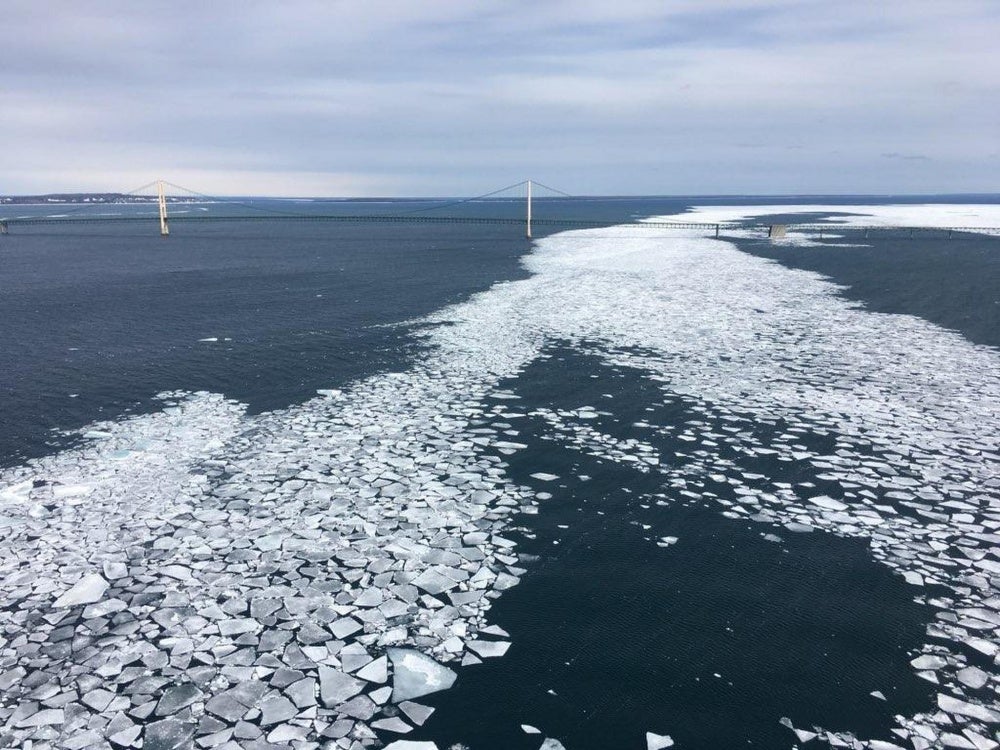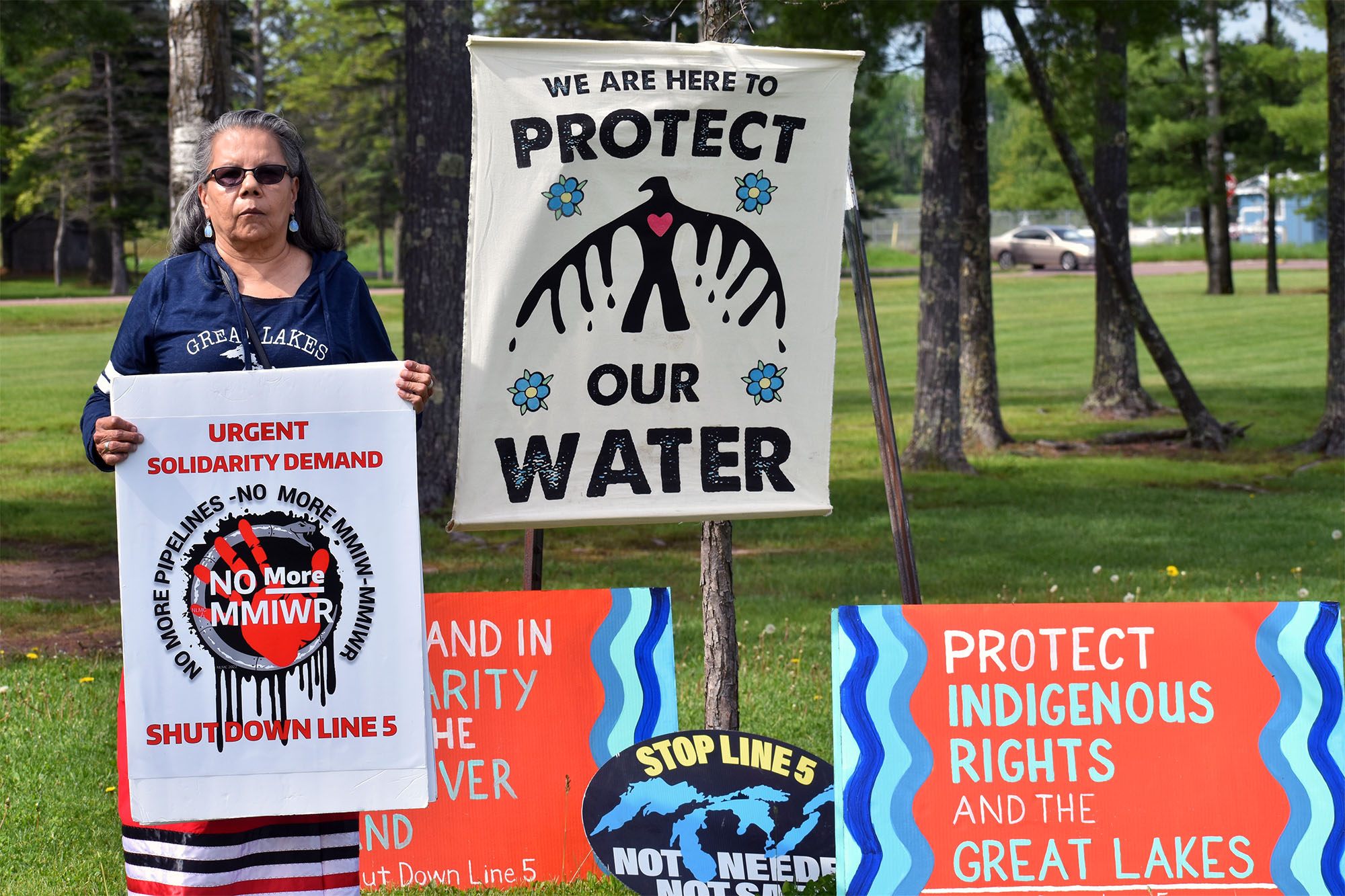Opponents of a controversial pipeline project say they’re submitting more than 150,000 comments to federal regulators against Enbridge’s plans to reroute Line 5 around the Bad River tribe’s reservation.
Canadian firm Enbridge and the Bad River Band of Lake Superior have been locked in a years-long legal battle over the fate of the pipeline on tribal lands. Enbridge is proposing a $450 million plan to build a new 30-inch segment of Line 5, which carries up to 23 million gallons of oil and natural gas liquids daily. The new stretch of pipe would run 41 miles around the reservation in Ashland and Iron counties, and the project involves more than 200 waterway crossings.
The reroute’s opponents say they’re urging the U.S. Army Corps of Engineers to halt the project in comments to the agency. The Corps is currently accepting comments on its draft environmental review of the proposed reroute through Friday, Aug. 30.
Stay informed on the latest news
Sign up for WPR’s email newsletter.
Bad River Tribal Chair Robert Blanchard said in a virtual press briefing that the tribe has been fighting Enbridge for more than a decade after the company’s easements expired on a dozen tracts of land in 2013.
“We’re still fighting that, and we just don’t want that threat to our lands and our waterways and Lake Superior,” Blanchard said. “Our wild rice beds, which we are harvesting right now down in the Kakagon Sloughs area, if we were to have something happen right now that could really damage our wild rice crop for many, many years to come and maybe forever. That’s something we don’t want to see.”
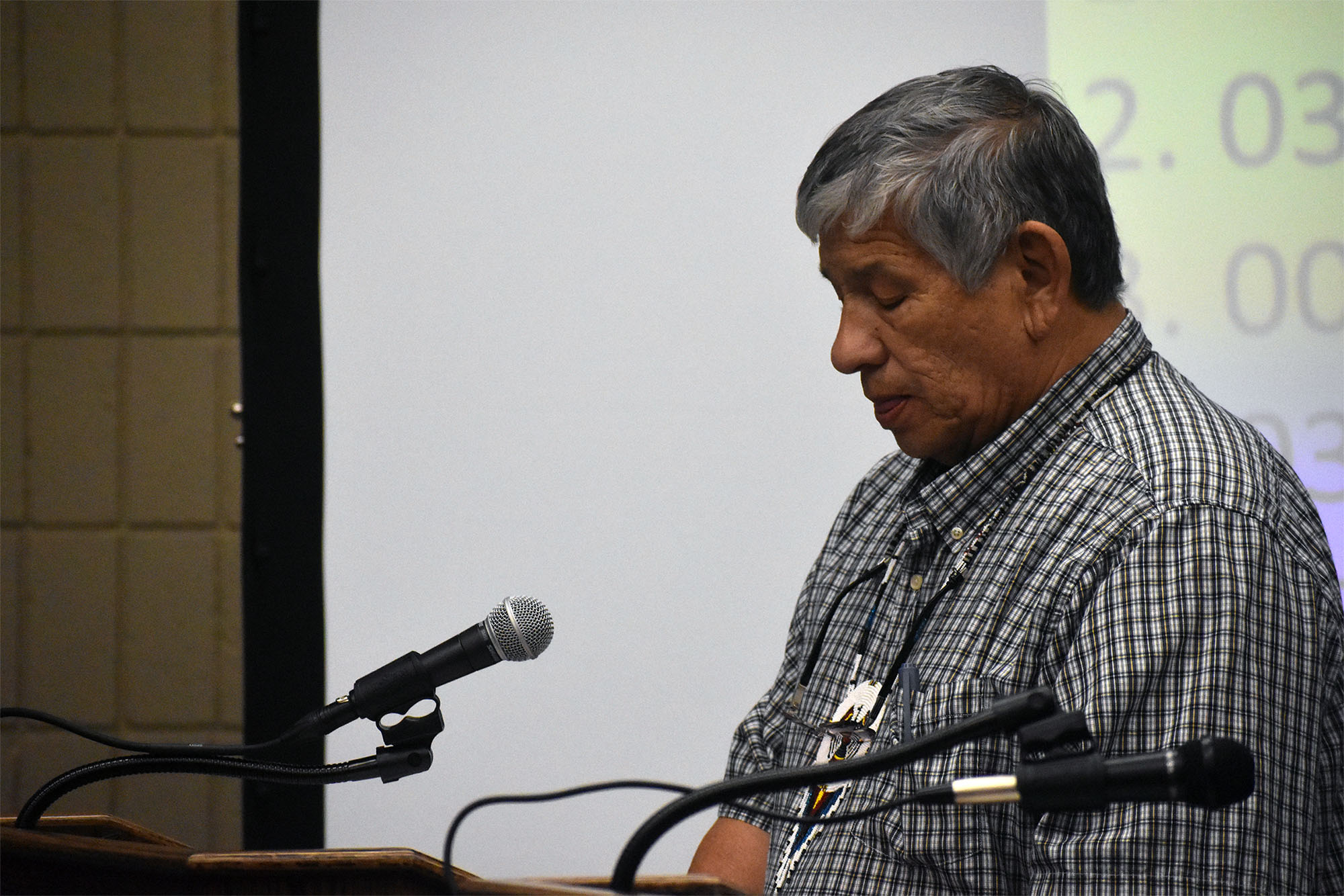
Rebecca Graser, deputy division chief with the Corps’ St. Paul District, said the agency had received more than 138,000 written and emailed comments as of Tuesday. She noted the agency typically receives many more near the end of the public comment period, adding comments are not tracked in terms of support or opposition of projects.
“Rather, we review all comments we receive to support a comprehensive, objective, and balanced decision on the permit application,” Graser wrote in an email.
A spokesperson for Earthjustice said it’s possible some groups have yet to deliver comments. Meanwhile, the Wisconsin Jobs and Energy Coalition said Wednesday that more than 14,000 people signed its petition in support of Line 5. The coalition’s spokesperson Mark Graul said “extremists” living outside Wisconsin have flooded the Corps with misinformed comments.
“None of these folks from California, New York and other faraway places have to rely on the propane Line 5 provides to heat their homes or drive their kids to school with the fuel Line 5 makes possible,” Graul said in an email.
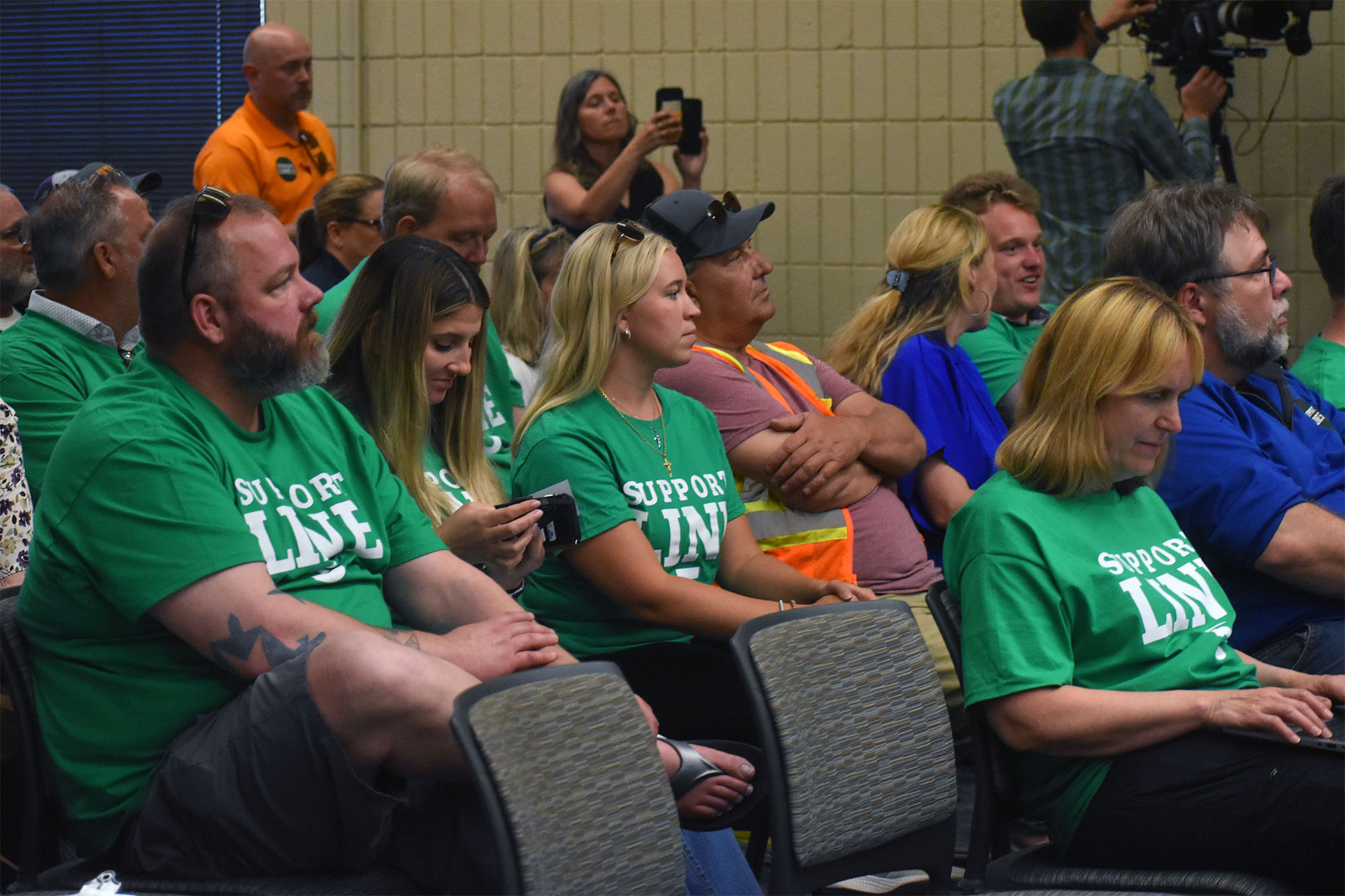
Bad River tribe sued Enbridge years ago to remove Line 5 from its lands
In 2019, the Bad River tribe sued Enbridge in federal court to shut down and remove Line 5 from its lands. In response, the company proposed rerouting the pipeline around the Bad River reservation.
Last year, U.S. District Judge William Conley ordered the company to pay $5.15 million for trespassing on the Bad River tribe’s lands where its pipeline easements expired, as well as shut down or reroute Line 5 where it’s illegally operating by June of 2026. Both the tribe and Enbridge have appealed the decision to the Seventh Circuit Court of Appeals. In April, the Biden administration urged a federal appeals panel to revisit Conley’s order, saying it should reconsider effects on the tribe’s treaty rights and trade relations with Canada.
Abby Novinska-Lois, executive director of Healthy Climate Wisconsin, took aim at Enbridge’s environmental track record. She noted Line 5 has experienced around 30 releases on land, spilling about 1 million gallons of oil. She also highlighted the company is responsible for the nation’s largest inland oil spills, including a 2010 spill that released more than 1.2 million gallons of oil into the Kalamazoo River.
Enbridge has said it’s spent billions of dollars upgrading technology and safety protocols since the 2010 spill.
“We’re speaking up because this project would lock us into a future with more fossil fuels, which drive climate change that sickens our community,” Novinska-Lois said.
Isak Drangstveit, a Wisconsin teen with the group Action for the Climate Emergency, urged the Army Corps and state regulators to deny permits for the project.
“Young people in Wisconsin will accept nothing but resounding denial from our regulators to shut down Line 5,” Drangstveit said.
On climate change, the Corps’ draft states the use and burning of crude oil and natural gas liquids by pipelines is outside of the agency’s scope to consider when deciding whether to grant a permit.
Enbridge spokesperson Juli Kellner noted the agency’s draft found the company’s preferred route is reasonable and practicable under federal environmental law.
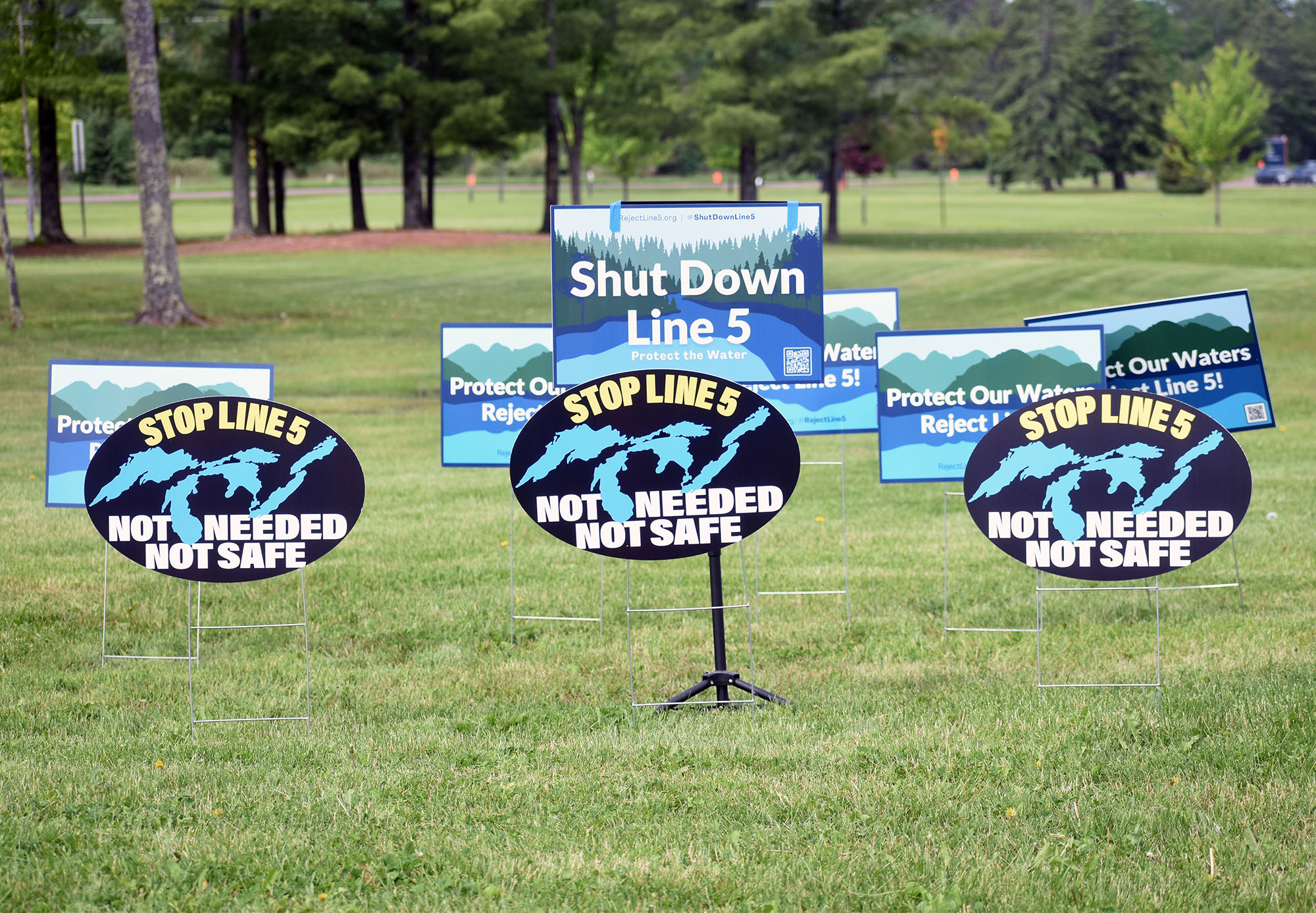
Opponents highlight risks of rupture on Line 5
Alexander Waters, who raises beef cattle on his farm outside of Ashland, accused Enbridge of maximizing profits regardless of the risks associated with its pipelines.
“Regardless of whether there’s a reroute, there’s still hundreds of miles of pipeline that could rupture at any moment,” Waters said.
The company has maintained the pipeline is safe. Pat Nemec, a business owner who is a Bad River tribal member, urged state and federal regulators to approve permits for the project.
“As an Ashland small business owner and proud member of the Bad River Band, I look forward to the economic benefits the relocation project will bring to our region and our tribe,” Nemec said in a statement.
Jason Wilhite feels the opposite. Wilhite, who works for the outdoor apparel company Patagonia, highlighted figures from the Council of the Great Lakes Region that show the lakes are home to 107 million people, 51 million jobs and contribute $6 trillion in economic value through the production of goods and services.
“Put simply a rupture of the Line 5 pipeline would have a devastating impact on our regional economy, our drinking water and our community’s ability to recreate,” Wilhite said.
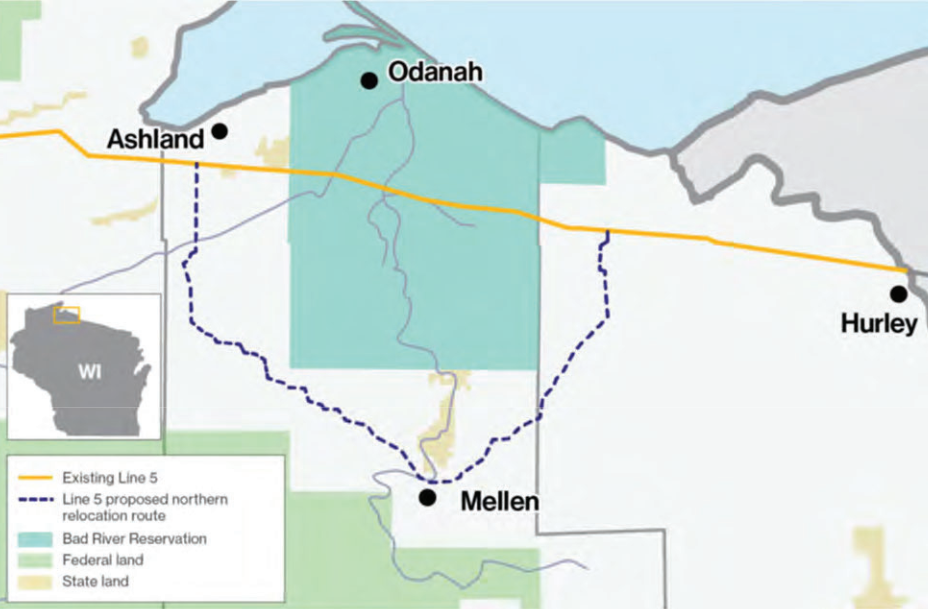
Supporters tout economic benefits of Line 5
Labor unions, business groups and Republican lawmakers that support the project have highlighted its estimated $135 million economic impact and anticipated 700 jobs during construction.
“This project will bring with it 700 Wisconsin union construction jobs — the kind of jobs that sustain families and build communities,” Corey Gall, president of the Wisconsin Pipe Trades Association said in a statement.
Enbridge’s Kellner also said any shutdown of Line 5 would negatively impact Midwest refineries and facilities.
“Shutting down Line 5 will result in the closure of the Plains Midstream propane fractionators in Superior, Wisconsin, and Rapid River, Michigan,” Kellner said in an email. “According to PBF Energy, which operates a refinery in the Toledo area, a Line 5 shutdown would put Ohio refineries at risk and could result in the loss of $5.4 billion in annual output to Ohio and southeast Michigan and the loss of thousands of jobs.”
The Army Corps is evaluating the environmental effects of the project as it reviews Enbridge’s application for a permit under the Clean Water Act. The Corps is regulating construction activities in federal waters affected by the project, as well as Enbridge’s proposal to drill underneath the White River.
The project is expected to temporarily disturb around 101 acres of wetlands and permanently fill less than an acre. The project would also temporarily disturb two-tenths of an acre of streams or ditches at 72 waterway crossings. While the project traverses 220 other waterways, the Corps said it doesn’t regulate those crossings.
Enbridge needs to obtain multiple state and federal permits for the project. The Army Corps said it’s unable to determine when it may issue a final decision on the company’s permit application.
Wisconsin Public Radio, © Copyright 2025, Board of Regents of the University of Wisconsin System and Wisconsin Educational Communications Board.

